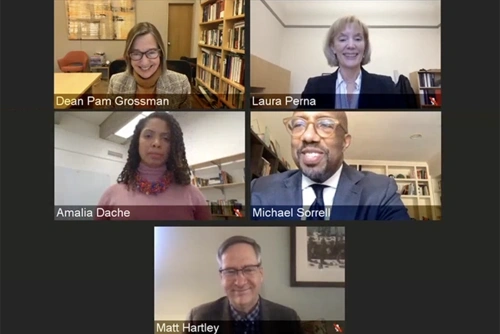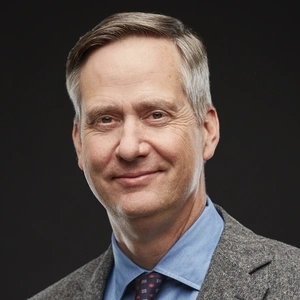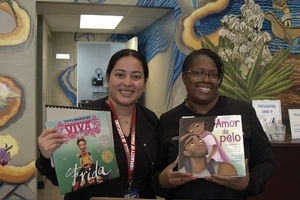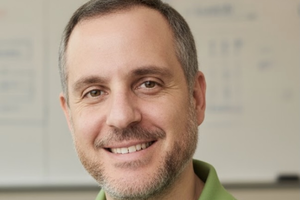Faculty Expert
-
Matthew Hartley
Professor and Board of Advisors Chair of Education
Policy, Organizations, Leadership, and Systems Division
What can institutions do to help students make informed choices about higher education? How can we make sense of skepticism surrounding cost, value, and return on investment? As higher education undergoes a seismic shift, Penn GSE has been rising to the challenge of preparing educators for a changing world.
Four members of the Penn GSE community who are at the forefront of these changes spoke at a Penn Alumni panel event, “The Future of Higher Education,” moderated by Penn GSE Dean Pam Grossman. The virtual event, part of Penn’s Inspiring Impact Faculty Series, attracted more than 400 households of Penn alumni, parents, and friends on February 10.

The panel consisted of one distinguished Penn GSE alumnus and three Penn GSE faculty members: Michael Sorrell, GRD’15, president of Paul Quinn College in Dallas, Texas; Amalia Daché, associate professor in the higher education division; Matthew Hartley, professor, Board of Advisors Chair of Education, and executive director of Penn AHEAD (Alliance for Higher Education and Democracy); and Laura Perna, Penn’s vice provost for faculty, GSE Centennial Presidential Professor of Education, and executive director of Penn AHEAD.
“I think we’re at an inflection point,” said Dr. Hartley, describing some of the most challenging pressures that colleges and universities face as they define and realize their educational purposes amid a global pandemic. “One of the things that we’ve learned from the pandemic is that actually we have a much wider range of tools to bring to bring people together, to engage in debate and dialogue,” he said.
Speaking about the promising role of virtual learning, he noted, “I think that most institutions [also] recognize they still have a fair amount of learning to do about high-quality online programming.”
In Dr. Perna’s view, something that educators must grapple with is the decline in undergraduate enrollment that began before the pandemic — a trend that raises questions about the cost and value of higher education. An expert in college access, affordability, and success, Perna noted that community colleges play a vital role workforce development but have lost a significant number of students during the pandemic.
“This is a moment to really consider the role of community colleges in our higher education system,” she said. “I think making community college [tuition] free would be a bold step.”
Dr. Sorrell found the pandemic provided a chance for colleges to reflect on their work: “COVID presented us with an opportunity to take a step back and ask ourselves what’s working, what’s not working, and how do we become something more,” he said. During Dr. Sorrell’s presidency at Paul Quinn, a historically Black college, the institution been widely acclaimed for its efforts to make higher education more responsive to the needs of students from underprivileged backgrounds. Paul Quinn’s innovative urban work college model has roots in Sorrell’s dissertation for Penn GSE’s Executive Doctorate in Higher Education Management program.
Looking ahead, Sorrell asserted the value of engaging in close proximity with learners and educators. “Making your higher education experience smaller and more personal leads to success. Success has to be that which allows you to change your life, in whatever way you envision it,” he said.
For Dr. Daché, geographic barriers are an important obstacle to be addressed. Proximity to colleges and universities matters for those affected by poverty, she says, because travel may be out of their reach financially.
“We have to think regionally and specifically about who is in our backyard when it comes to serving our communities,” said Dr. Daché, who researches local college access in Philadelphia and asserts higher education’s important role in bridging gaps between K–12 and college. For Daché, radical change in higher education would mean “removing proximity as a barrier so we can really reimagine what [access] can look like for communities that have to use transit as their only option.”
Looking ahead, the four panelists are excited about the possibilities of advancing the urban work college model, providing opportunity for all people, removing proximity as a barrier, reviving our democracy, and partnering with communities.
“My dream is that all people have the opportunity for high quality higher education—regardless of your family income, your parents’ education, your race/ethnicity, what high school you attend, and what community you lived in,” said Perna.
Watch the full recording of the event and register to be a part of future events by Penn Alumni: https://www.alumni.upenn.edu/s/1587/gid2/16/interior.aspx?sid=1587&gid=2&pgid=36358











